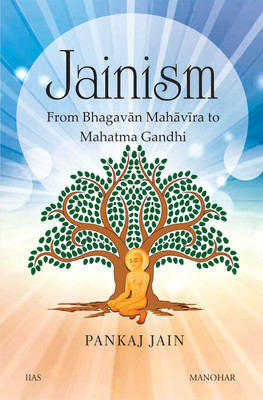Jainism: From Bhagavan Mahavira to Mahatma Gandhi(Hardcover, Pankaj Jain)
Quick Overview
Product Price Comparison
Dr. Pankaj JainŌĆÖs monograph on Mah─üv─½ra, the 24th T─½rthaß╣ģkara of Jainism, offers a comprehensive exploration of his life, teachings, and enduring influence on Jain virtue ethics and environmental sustain┬Łability. Structured around the five Jain milestones ŌĆō conception, birth, renunciation, omniscience, and liberation ŌĆō the manuscript draws from primary Prakrit and Sanskrit texts, as well as secondary sources in English, Hindi, and Gujarati, to construct a detailed biography. It ad┬Łdresses the scarcity of English-language works on Mah─üv─½ra compared to those on Buddhism, emphasizing his role in shaping JainismŌĆÖs dis┬Łtinct identity. The introduction critiques the ŌĆśimperialism of categoriesŌĆÖ, advocating for a dh─ürmic framework that intertwines philosophy, religion, and ecology, avoiding Western dichotomies. JainismŌĆÖs core virtues ŌĆō Ahimsa (non┬Łviolence), Aparigraha (non-accumulation), and Anek─ünta┬Łv─üda (pluralism) ŌĆō are explored as foundational to sustainable prac┬Łtices, influencing figures like Gandhi and Martin Luther King Jr. The manuscript highlights JainismŌĆÖs environmental contributions, such as vegetarianism and animal sanctuaries, exemplified by inst┬Łitutions like the Sumati Jeev Raksha Kendra. It also engages with scholarly debates, critiquing Western IndologyŌĆÖs neglect of contem┬Łporary Indian sources and addressing sectarian disputes, such as Mah─üv─½raŌĆÖs birthplace and marital status. Supported by FLAME University and the Indian Institute of Advanced Studies, this work underscores Mah─üv─½raŌĆÖs legacy in promoting non┬Łviolence and ecological consciousness, offering a nuanced perspective on JainismŌĆÖs relevance to modern sustainability challenges. Through rigorous analysis and interdisciplinary insights, JainŌĆÖs monograph bridges ancient wisdom with contemporary environmental ethics.


